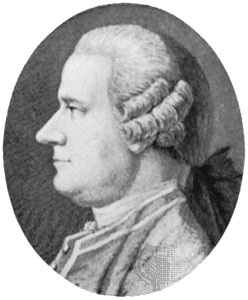Ingenhousz, Jan
Dutch scientist
born Dec. 8, 1730, Breda, Neth.
died Sept. 7, 1799, Bowood, Wiltshire, Eng.
 Dutch-born British physician and scientist who is best known for his discovery of the process of photosynthesis, by which green plants in sunlight absorb carbon dioxide and release oxygen.
Dutch-born British physician and scientist who is best known for his discovery of the process of photosynthesis, by which green plants in sunlight absorb carbon dioxide and release oxygen.As a physician in London (1765–68), Ingenhousz was an early proponent of variolation, or the inoculation against smallpox through the use of live, unmodified virus taken from patients with mild cases of the disease. In 1768 he traveled to Vienna to inoculate the family of the Austrian empress Maria Theresa and subsequently served as court physician. Returning to London in 1779, he published the results of an ingenious study on the chemical effects of plant physiology, Experiments Upon Vegetables, Discovering Their Great Power of Purifying the Common Air in Sunshine, and of Injuring It in the Shade and at Night. The English chemist Joseph Priestley had already shown that plants restore to the air a property necessary to—but destroyed by—animal life. Ingenhousz found that (1) light is necessary for this restoration (photosynthesis); (2) only the green parts of the plant actually perform photosynthesis; and (3) all living parts of the plant “damage” the air (respire), but the extent of air restoration by a green plant far exceeds its damaging effect.
A man of varied scientific interests, Ingenhousz also invented an improved apparatus for generating large amounts of static electricity (1766) and made the first quantitative measurements of heat conduction in metal rods (1789).
- Atakpamé
- Atalanta
- Atal Bihari Vajpayee
- Atami
- Atanasoff-Berry Computer
- Atanasoff, John V(incent)
- Atapuerca
- Atar
- Atargatis
- Atari console
- Ataturk Dam
- Atatürk, Kemal
- Ataulphus
- ataxia
- ataxite
- Atbara River
- Atbasar
- Atchafalaya Bay
- Atchafalaya River
- Atchison
- Atchison, Topeka and Santa Fe Railway Company, The
- Ate
- atelectasis
- Aterian industry
- Ateste